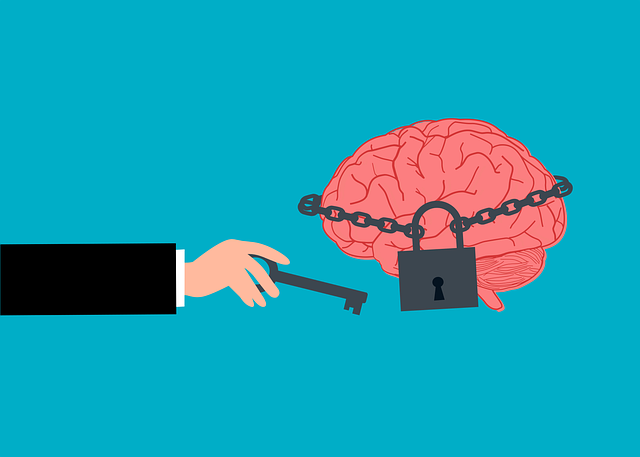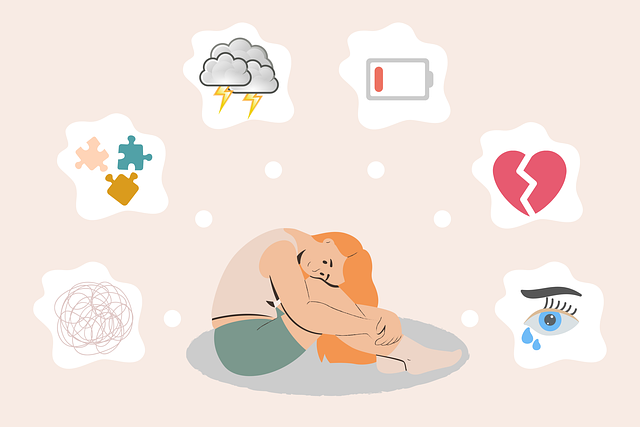Depression among teens is a serious issue, but early intervention through recognizing its signs can prevent long-term harm. Organizations like Englewood Adolescent and Teen Therapy focus on open communication, education, therapy, and building resilience to combat this mental health crisis. By combining evidence-based therapies, lifestyle adjustments (like exercise, sleep, and healthy eating), stress management techniques, positive thinking, and social connections, teens can develop coping mechanisms and emotional fortitude. Englewood Adolescent and Teen Therapy's community programs emphasize group support, education, and connection, promoting a culture of care and mental wellness for at-risk individuals.
Depression is a prevalent yet manageable condition, especially with the right strategies. This guide explores comprehensive approaches to prevention, focusing on understanding the signs, building resilience, and fostering social connections. Learn how therapy, stress management techniques, and lifestyle adjustments can significantly impact mental well-being, particularly for adolescents and teens in Englewood. Discover actionable steps to equip yourself or a loved one with tools to combat depression effectively.
- Understanding Depression: Recognizing Signs and Symptoms
- Building Resilience: Coping Mechanisms and Stress Management Techniques
- Seeking Support: The Role of Therapy and Social Connections
- Lifestyle Adjustments for Long-Term Mental Well-being
Understanding Depression: Recognizing Signs and Symptoms

Depression is a common yet serious mental health condition that can significantly impact an individual’s daily life. Understanding depression involves recognizing its subtle signs and symptoms, which may vary from person to person. Common indicators include persistent feelings of sadness, loss of interest in activities once enjoyed, changes in appetite and sleep patterns, fatigue, difficulty concentrating, and thoughts of worthlessness or suicide. Recognizing these signs early is crucial as it enables individuals to seek help before the condition worsens.
Englewood Adolescent and Teen Therapy emphasizes the importance of open communication and education about mental health. Through therapeutic interventions and support systems, teens can develop coping strategies and build resilience. Mental Health Policy Analysis and Advocacy plays a vital role in ensuring accessible resources for at-risk individuals. Regular risk assessments for mental health professionals are essential to identify early warning signs and provide timely interventions, fostering a culture of care and awareness.
Building Resilience: Coping Mechanisms and Stress Management Techniques

Building resilience is a key component in preventing depression. Coping mechanisms and stress management techniques empower individuals to navigate life’s challenges with greater ease. Encouraging positive thinking and the development of coping skills can help teens and adolescents build mental fortitude. Engaging in activities that foster a sense of accomplishment, practicing mindfulness, and adopting healthy self-care routines are all effective strategies.
The support system plays a crucial role as well. Community outreach program implementations, such as those offered by Englewood Adolescent and Teen Therapy, can provide additional resources and connections for individuals seeking help. These programs often offer group therapy sessions, education on stress management, and opportunities to build social connections—all of which contribute to a robust coping toolkit. By integrating these strategies into daily life, individuals can better manage stress, strengthen their emotional well-being, and reduce the risk of depression.
Seeking Support: The Role of Therapy and Social Connections

Seeking support is a vital component of depression prevention strategies. Therapy plays a crucial role in identifying root causes and developing coping mechanisms tailored to individual needs. At Englewood Adolescent and Teen Therapy, professionals employ evidence-based practices to help young people navigate emotional challenges and foster resilience. Engaging in therapy allows individuals to explore thoughts and feelings, gain new insights, and learn effective strategies for managing stress and negative emotions.
Social connections are another powerful tool in the fight against depression. Building and maintaining strong relationships can provide a sense of belonging, support, and validation. Encouraging open communication and fostering a supportive environment at home, school, or within communities can significantly contribute to emotional healing processes. Moreover, advocating for mental health through policy analysis and advocacy ensures that resources and services are accessible, promoting proactive depression prevention strategies on a larger scale, including initiatives like Self-Care Routine Development for Better Mental Health and Mental Health Policy Analysis and Advocacy.
Lifestyle Adjustments for Long-Term Mental Well-being

Englewood Adolescent and Teen Therapy offers valuable insights into fostering long-term mental well-being through lifestyle adjustments. Encouraging teens to embrace a balanced routine, including regular exercise, adequate sleep, and healthy eating habits, is a cornerstone of prevention strategies. Physical activity not only boosts mood but also provides an outlet for stress relief and self-expression. Establishing consistent sleep patterns helps regulate hormones and strengthens emotional resilience.
Additionally, cultivating positive thinking and promoting emotional intelligence are essential components of this approach. Encouraging teens to practice mindfulness, engage in enjoyable activities, and develop coping mechanisms for managing stress can significantly enhance their overall emotional well-being. These lifestyle modifications, when integrated into daily routines, serve as powerful tools for prevention, ensuring adolescents navigate life’s challenges with greater equanimity and resilience.
Depression is a complex condition, but with the right strategies, prevention is achievable. By recognizing early signs, developing resilience through effective coping mechanisms, and fostering strong social connections, individuals can build a robust foundation for mental well-being. Engaging in lifestyle adjustments like regular exercise, adequate sleep, and a balanced diet further strengthens this defense. Remember, seeking professional help from Englewood Adolescent and Teen Therapy is not a sign of weakness but rather a proactive step towards managing and overcoming depression. Through therapy, individuals can gain valuable tools to navigate life’s challenges and cultivate long-lasting resilience.














